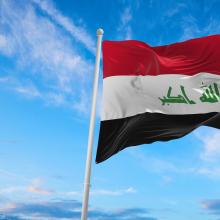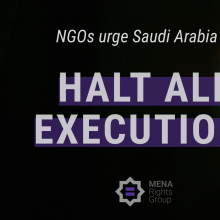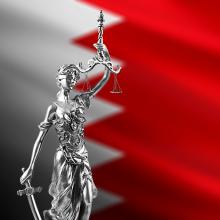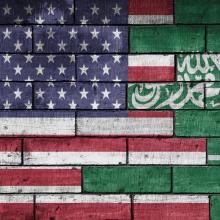July 09, 2021
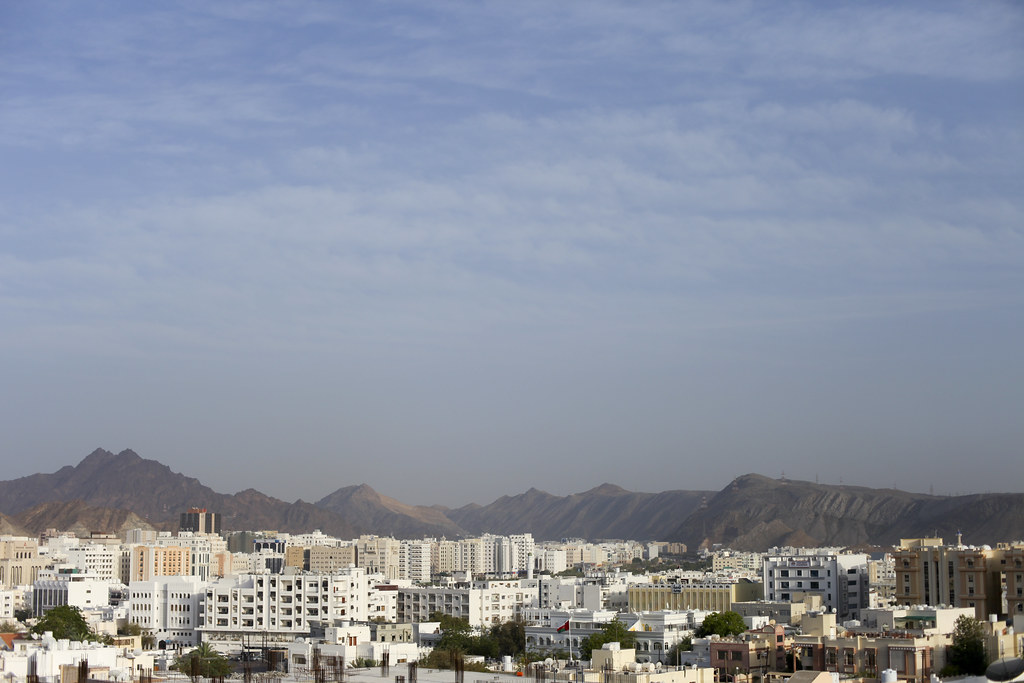
Muscat - Rumi view © Scalino, licensed under CC BY-NC 2.0
In July of 2020, ahead of Oman’s third Universal Periodic Review (UPR), MENA Rights Group and the Omani Centre for Human Rights submitted a joint-report to the UN Human Rights Council which analyzed the human rights situation in Oman and provided UN member states with recommendations geared towards protecting and promoting human rights in the Sultanate. The UPR is a peer review mechanism through which UN member states are reviewed by other member states and provided with recommendations geared towards improving the human rights record of the country under review. Ninety-nine state delegations provided the Omani delegation with recommendations to improve the human rights situation in the Sultanate, with the Omani state party receiving a total of 264 recommendations.
Ratification of International human rights treaties and optional protocols
In June of 2020, Oman ratified the Convention against Torture and Other Cruel, Inhuman or Degrading Treatment or Punishment (CAT), the Convention for the Protection of All Persons from Enforced Disappearance (CED), and the International Covenant on Economic, Social and Cultural Rights (ICESCR). During its UPR this year, more than 30 of the recommendations received by Oman urged the authorities to ratify the remaining international human rights conventions and optional protocols to which Oman has not yet acceded. This includes the International Covenant on Civil and Political Rights (ICCPR) and its two Optional Protocols, the International Convention on the Protection of the Rights of All Migrant Workers and Members of Their Families (ICRMW), the Optional Protocol to the Convention on the Elimination of All Forms of Discrimination against Women (CEDAW) and the Optional Protocol to the CAT.
While the Omani delegation accepted the recommendation to ratify the ICCPR, it only took note of the recommendations to ratify the ICRMW, the optional protocols to the ICCPR, the optional protocol to the CAT, and the optional protocol to CEDAW. While Estonia, the Netherlands, Italy, Portugal, and Germany urged the Omani authorities to withdraw their reservations to the CEDAW, the ICESCR, and the CAT, the Omani authorities only took note of these recommendations.
Freedom of expression, assembly and association
In 2018, Oman amended its Penal Code in a manner that further restricted the right to freedom of expression, assembly and association in the country. Amendments included broad provisions which, for example, criminalised any criticism of the Sultan, under article 97, and the criticism of any foreign head of state in or visiting Oman, under article 102. Under article 12 of Oman’s Press and Publications Law, owners of printing presses must “obtain permission in advance from the Ministry of Information” before publishing any publication.
With regards to the right to freedom of assembly, article 121 of the 2018 Penal Code criminalises participating in or joining a public gathering of ten individuals or more “where this is liable to cause a breach of security of public order.” The 2018 Penal Code also imposes severe punishments on establishing or working with associations or organisations seeking to “contest the political, economic, social or security principles of the state” or to “harm the foundations on which the Islamic religion is based”, under article 116 and 270. Oman’s 2002 Telecommunication Law and its 2011 Cybercrime law have also been used repeatedly to punish and arrest activists and to ban books, impose travel bans, suspend the licenses of independent media and shut down newspapers.
During Oman’s UPR session this year, several UN members states, including Canada, the UK, Uruguay and Switzerland, recommended that Oman amend its legislation, including its Penal Code, in order to guarantee the right to freedom of expression, assembly and association and to refrain from criminalizing opinions that are dissenting or critical of the government. The Omani delegation only took note of these recommendations, while asserting that the authorities maintain the right to organise the right to freedom of expression and association in the country, in accordance with international laws and conventions to which Oman has acceded.
The right to life
The death penalty continues to exist in Oman, with Oman’s 2018 Penal Code containing over 20 articles in which the death sentence is listed as punishment.
During its UPR, over 15 UN member states urged the Omani authorities to take the necessary steps to abolish the death penalty or establish a moratorium on its use, including by acceding to the Second Optional Protocol to the ICCPR, aiming at the abolition of the death penalty. The Omani delegation only took note of these recommendations, while maintaining that the death penalty “is prescribed only for the most serious crimes, and it is surrounded by many guarantees that make its application only possible in the narrowest scope, and after ensuring that all judicial guarantees are available for the ruling to become final.” It is worth noting that under Oman’s Penal Code many of the offences to which the death penalty is prescribed as punishment, including for drug-related offences, do not meet the threshold of “most serious crimes”. In 2018, and after a nine-year moratorium on the death penalty, the Omani authorities sentenced four individuals to death.
Independence of the judiciary
France was the only UN member state that recommended that Oman guarantee the independence of the judiciary, a recommendation that Oman supported. Additionally, India recommended that Oman provide the judiciary with human rights training and awareness raising programs, which was also supported by Oman.
Although Oman’s 2012 Law on Judicial affairs guarantees the independence of the judiciary within the Sultanate, the Sultan is provided with excessive powers that provide him with undue influence on the judicial system within the country. The Sultan has the power to directly appoint and dismiss senior judges. He presides over the Council of Ministers, the body in charge with overseeing compliance with court judgements, and chairs the Supreme Council of the Judiciary, the State institution tasked with overseeing and supervising the country’s judicial system.
Next steps
Following its UPR session this year, the Omani authorities are now required to implement the accepted recommendation prior to their fourth periodic review before the UN Human Rights Council, which is set to take place in November 2025.


